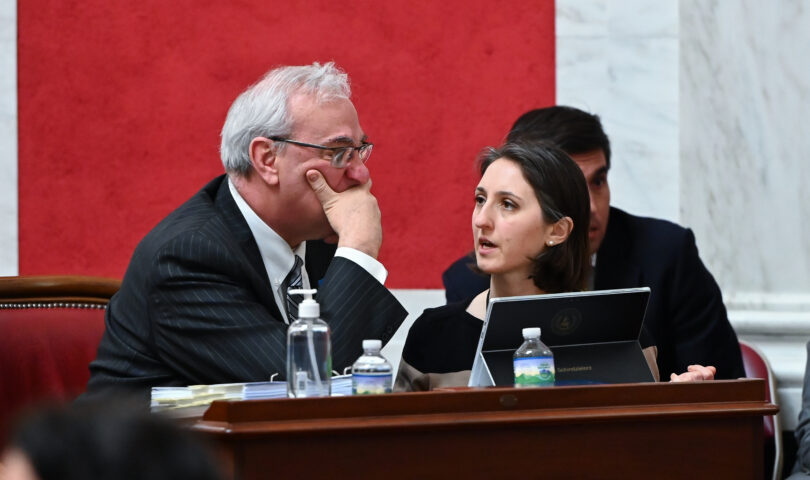MORGANTOWN – New car dealers could see a tax break if a House bill revamped and passed Wednesday by the Senate completes its legislative journey.
That bill, plus one to reinstate the film tax credit and one to ensure family members can visit loved ones after surgery were among the bills passed in the Senate.
HB 4567 is the tax bill. The House version ended all local business and occupation (B&O) taxes on the sale of new automobiles effective July 1.
The Senate version does it in phases, Finance chair Eric Tarr, R-Putnam, said, to help local governments transition. Starting July 1, 2023, 50% of the tax wold be cut. On July 1, 2024, 50% of the remaining tax would be cut, and it would be gone on July 1, 2025.
The Senate version also specifies that automobiles mean cars, electric vehicles and light trucks, but not motorcycles. Used automobiles remain subject to B&O tax in both versions.
Sen. Richard Lindsay, D-Kanawha, said he reluctantly opposed the bill because cities use B&O taxes to fund police, fire and EMS service. It picks winners and losers and may require other businesses to see tax hikes. Also, there’s nothing in the bill to require dealers to pass along the savings to customers.
But Sen. Mike Woelfel, D-Cabell, supported it. Huntington has already abolished this tax. But his law firm and his family apartment rental business both pay B&O tax.
Woelfel said businesses can lose money, be in the hole, and still have to pay B&O tax. “It’s a horrible tax.” And car dealers pay good wages, support Little League and all sorts of community service.
It passed 27-6 and goes back to the House. Locally, Democrats Bob Beach and Mike Caputo voted against it; Republicans Charles Clements, Mike Maroney, Randy Smith and Dave Sypolt voted for it.
Film tax credit
HB 2096 reinstates the film tax credit previously abolished in 2017 after a legislative audit revealed abuses and its utter failure to draw film projects.
The new version allows for a cumulative $50,000 credit, allowing companies that pursue more than one project in the state with no one project meeting the threshold to apply. Senate amendments exclude commercials and promotional videos, remove an annual cap on credits the state can grant, and require qualified expenses and services to be provided by West Virginia vendors.
Sen. Robert Karnes, R-Randolph, said the bill will benefit Hollywood millionaires like Bette Midler without helping any West Virginians.
Other senators cited examples to refute his claim, including Caputo, D-Marion, who talked about a film made in Rivesville about the Feast of the Seven Fishes. All kinds of money flowed into town. “It was just as exciting an event that I’ve ever witnessed in my little one-horse town.”
The producers are West Virginians who wanted to give back to the state and plan another $4.5 million production in West Virginia in May. “This is a great bill.”
The vote was 32-1 and it returns to the House for amendment concurrence.
Visitation bill
HB 4257 says that during a public emergency, a hospital must allow post-surgical visitation to a patient, once the patient is stable. The House passed it 92-0 at the end of January.
On Wednesday, the Senate adopted a Health Committee amendment produced last week that patches in a different Senate bill. It specifies clergy may also visit the patient; and if the facility has limits on the number of visitors, clergy will not be included as part of the limit.
Sen. Patricia Rucker, R-Jefferson, offered an emotional speech supporting the bill. She reminded her colleagues that she missed the early part of the session because her husband and father were hospitalized at the same time. He husband could have died; her father did die.
“Being with your loved one when they’re suffering makes a huge difference in whether they recover or not,” she said.
It passed 33-0 and returns to the House.
Tweet David Beard @dbeardtdp Email dbeard@dominionpost.com




